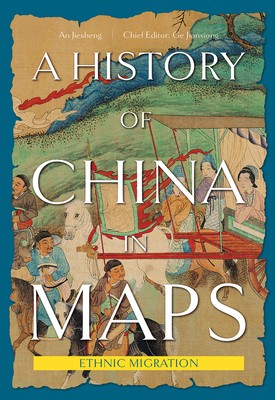
- We will send in 10–14 business days.
- Author: Jiesheng An
- Publisher: Royal Collins Publishing Company
- Year: 2022
- Pages: 328
- ISBN-10: 1487809379
- ISBN-13: 9781487809379
- Format: 17 x 23.4 x 3.8 cm, hardcover
- Language: English
- SAVE -10% with code: EXTRA
Reviews
Description
China is a nation made up of many different ethnicities - all of which owe their origins to various migration movements, even traditional Chinese agricultural societies. This vast and complex history of various people migrations, and the blending and intertwining of ethnicities forms the basis of this book.
For readers interested in a detailed account as to how these various groups - including the Han, Mongols, Xianbei, and Tartars - emerged, spread, intermixed, and perhaps declined, there's no need to look any further: many pages are dedicated to the customs, origins, and fates of these different peoples. As evidenced in the text, many customs and aspects of culture are borrowed from others, leading to a constant evolution of these ethnicities, and more broadly of China as a whole. Without such migration, there would be no modern Chinese nation. As made clear by the author, these great people movements underpin and form all civilizations throughout history: no single ethnic group exists in isolation, nor is impermeable from the influence of others. To better understand China's contemporary make-up, please explore this volume further.EXTRA 10 % discount with code: EXTRA
The promotion ends in 20d.22:04:44
The discount code is valid when purchasing from 10 €. Discounts do not stack.
- Author: Jiesheng An
- Publisher: Royal Collins Publishing Company
- Year: 2022
- Pages: 328
- ISBN-10: 1487809379
- ISBN-13: 9781487809379
- Format: 17 x 23.4 x 3.8 cm, hardcover
- Language: English English
China is a nation made up of many different ethnicities - all of which owe their origins to various migration movements, even traditional Chinese agricultural societies. This vast and complex history of various people migrations, and the blending and intertwining of ethnicities forms the basis of this book.
For readers interested in a detailed account as to how these various groups - including the Han, Mongols, Xianbei, and Tartars - emerged, spread, intermixed, and perhaps declined, there's no need to look any further: many pages are dedicated to the customs, origins, and fates of these different peoples. As evidenced in the text, many customs and aspects of culture are borrowed from others, leading to a constant evolution of these ethnicities, and more broadly of China as a whole. Without such migration, there would be no modern Chinese nation. As made clear by the author, these great people movements underpin and form all civilizations throughout history: no single ethnic group exists in isolation, nor is impermeable from the influence of others. To better understand China's contemporary make-up, please explore this volume further.

Reviews